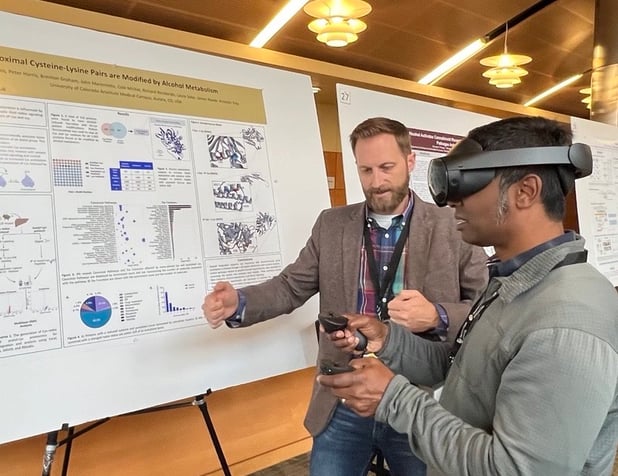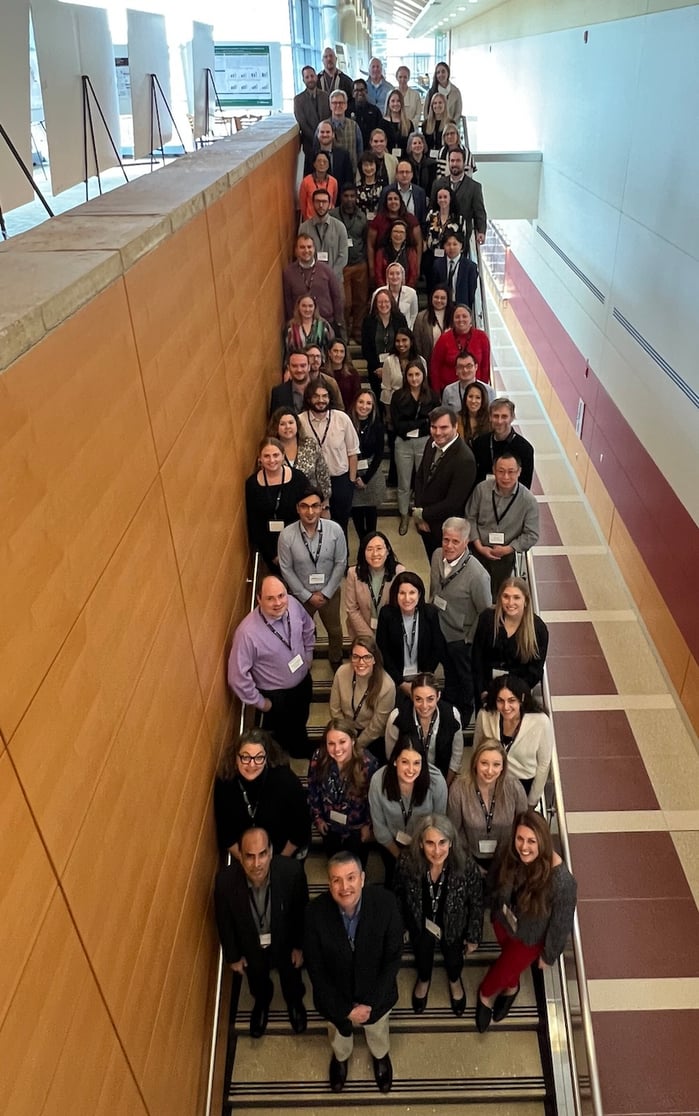Researchers from around the country gathered on the University of Colorado Anschutz Medical Campus earlier this month to share their latest findings on the relationship among alcohol use, immunity, and inflammation.
The annual meeting of the Alcohol and Immunity Research Interest Group (AIRIG) was sponsored by the Alcohol Research Program and the Division of GI, Trauma and Endocrine Surgery in the CU Department of Surgery.
“It's known that alcohol alters how your body responds to everything,” says Alcohol Research Program director Elizabeth Kovacs, PhD. “If you are intoxicated when you sustain a burn injury, it impairs wound healing and the body’s ability to fight infections. And it doesn't matter how much alcohol it is — whether it’s one drink or 30 years of drinking, any amount of alcohol will do it.”
Research on alcohol’s effects
Kovacs’ research has shown that inflammation is associated with numerous alcohol-related medical conditions, and that alcohol exposure exacerbates inflammatory states in multiple organ systems, including the gut, liver, lungs, skin, and brain. Presenters at the AIRIG meeting shared their own explorations into the topic, including presentations on alcohol-induced liver inflammation, the relationship between alcohol and autoimmunity, and treating alcohol-associated pneumonia. The event — which is funded by a meetings grant from the National Institutes of Health — included presentations by invited speakers, a poster session, and a mentoring lunch in which early-career researchers were able to receive advice on applying for grants and fellowships.
“You need a critical mass to write a multi-investigator grant application, and you also need a critical mass of researchers to write the letters of support for your grant application. Additionally, you need to polish it and make it look beautiful, so that the reviewers are not confused by terminology,” says Kovacs, vice chair of research for the CU Department of Surgery.
 An AIRIG participant presents his poster project to a visitor. (All photos by Silvia Amaro)
An AIRIG participant presents his poster project to a visitor. (All photos by Silvia Amaro)
The COVID-19 problem
Research on alcohol’s effects on immunity and inflammation has grown in importance in recent years, Kovacs says, in large part because the rise in alcohol use that began during the lockdown period of the COVID-19 pandemic has still not abated.
“My pulmonary colleague, Ellen Burnham, MD, found that patients in the intensive care unit have more alcohol in their system than they did five years ago,” Kovacs says. “The stresses of life make people drink more, and the stresses of life make you worse off, health-wise. Combine that with a respiratory infection, and it causes more problems.”
Burnham, professor of medicine–pulmonary sciences and critical care, was a co-chair of the AIRIG conference’s Alcohol and Host Immunity session; other CU presenters at the meeting included Lisa Brenner, PhD, professor of physical medicine and rehabilitation, who spoke on alcohol misuse and inflammation in people seeking care for acute mild traumatic brain injury, and Shannon Twardy, MS, a PhD student in the Skaggs School of Pharmacy and Pharmaceutical Sciences, who presented her research on the role of the C5 complosome in Kupffer cell inflammasome activation in alcohol-associated liver disease.
“She's looking at complement, which is part of the coagulation cascade, and how that is affected following alcohol exposure in the context of Kupffer cells in the liver, which is an immune cell that is macrophage-like, meaning its job is to eat garbage and clear it from the system,” Kovacs says.
Studying the gut-brain axis
Another featured area of research at the AIRIG conference was alcohol’s effect on the gut microbiome, which is a growing area of interest in the field and a component of the ongoing research in the Kovacs lab.
“One of the connections people started making several years ago is that alcohol changes the gut microbiome, and the microbiome controls everything,” Kovacs says. “It elevates inflammatory responses at every organ. The gut may affect the lungs, may affect the liver, may affect the brain. There are studies in my lab and elsewhere looking at the gut-brain axis that suggest that any amount of alcohol is deleterious.”
 AIRIG meeting participants pose for a photo.
AIRIG meeting participants pose for a photo.
Some of the invited speakers at the AIRIG meeting might be among the only researchers at their institution conducting research on alcohol and immunity, Kovacs says, which makes the annual gathering an eagerly awaited opportunity to network and collaborate. And with 68 attendees, it has a “warm and fuzzy” feel compared to other conferences, she says.
“It's designed to bring people together,” she says. “Many conferences are so big that you don't have time to talk to people or you can't find them. Here, we're all accessible all day. We have breakfast, lunch, and dinner together. You can find the people you want to talk to, as opposed to waiting in line to ask a question."




.png)
